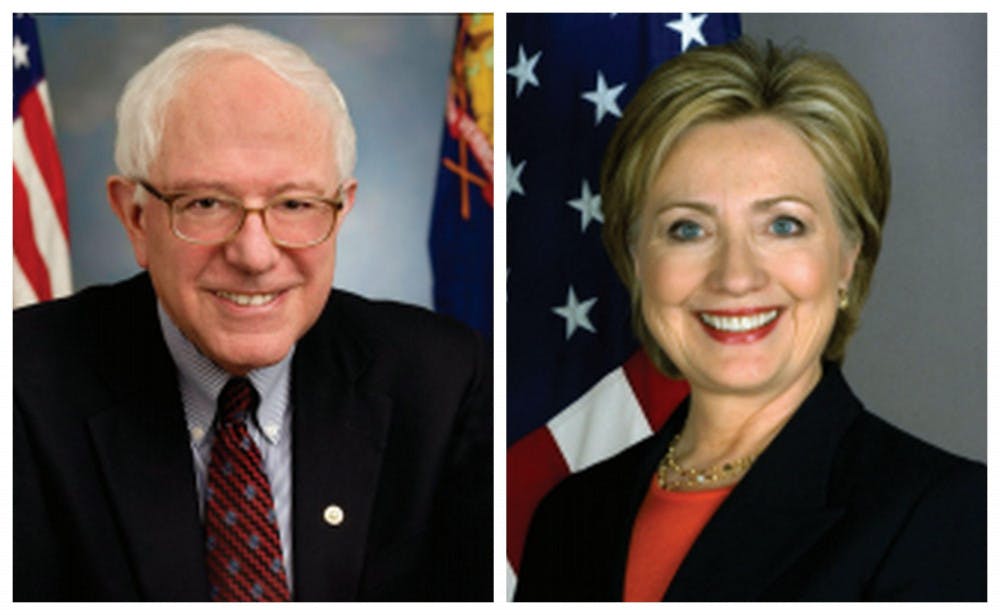One of the more interesting story lines thus far in the 2016 election cycle has been the emergence of Sen. Bernie Sanders of Vermont as Hillary Clinton’s main challenger in the Democratic primary. Sanders, a 73-year-old self-described socialist who is technically not a Democrat (rather, an independent Senator who caucuses with the Democrats in the Senate) has surprised many analysts with his rapid rise in the polls and his ability to draw large crowds of highly-energized supporters.
Sanders now consistently polls in second place, coming within striking distance of Clinton in more progressive primary states — such as New Hampshire, Oregon and Minnesota — and has even overtaken Clinton in one poll in New Hampshire. Sanders’ rapid rise has prompted some to wonder whether the Vermont Senator may follow the same path as then-Senator Obama in 2008 — running to Clinton’s ideological left and defeating her.
Despite Sanders’ surge, there’s reason to be skeptical of his ability to sustain his campaign’s success long enough to overtake Clinton, who remains the prohibitive Democratic frontrunner.
It’s true that Clinton’s margins over Sanders’ in most polls have declined considerably since he entered the Presidential contest. When Sanders announced his candidacy in May, he trailed Clinton by a daunting 57-point margin in the Real Clear Politics polling average. Two and a half months later, that margin has been cut to around 25 points. However, the Sanders’ campaign has a likely fatal weakness – thus far, Sanders’ support is almost exclusively limited to white, liberal voters. Despite polling well (or at least decently) in the Northeast, Midwest and Pacific Northwest, Sanders’ levels of support in the South, thus far, have been abysmal. In South Carolina, a crucial early primary state in which a large percentage of the Democratic electorate reside, Sanders trails Clinton by nearly 60 points. His support among black and Hispanic voters, on average, has been nearly nonexistent. If this trend continues, Sanders may manage to pick off a few states during the Democratic primary but will come nowhere close to winning the nomination with such limited demographic support.
In addition to his demographic limitations, Sanders’ ideological purity on matters such as campaign finance reform may hinder his chances of becoming a serious threat to Clinton. Opposition to Super PAC funding, which has saturated recent national elections with billions of dollars of corporate spending, has been a matter of conviction for Sanders thus far, as he has stated his refusal to accept such funds. Unfortunately for Sanders, the Supreme Court’s decision in Citizens United enshrined Super PAC donations as an extremely influential element of national elections. Sanders’ refusal to accept Super PAC funds, while staunchly consistent with his beliefs, will likely lead to Clinton gaining an insurmountable cash advantage and prevent Sanders from becoming a serious threat.
Sanders has risen further and faster in the polls than nearly anyone predicted, and the Clinton campaign’s recent troubles relating to Hillary Clinton’s email server create a remote possibility that Sanders could theoretically pull off a massive upset and defeat Clinton. What must be remembered, however, are three things.
- Clinton still leads Sanders by nearly 25 points nationally.
- Sanders has only ever led Clinton in one poll in one of the smallest states in the nation.
- Money doesn’t win elections, but it certainly helps. And Clinton is likely to have exponentially more than Sanders.
As the race currently stands, while Sanders could keep the contest respectably close and perhaps win a few states, it appears very unlikely that he could climb high enough and sustain his momentum long enough to overcome the powerful Clinton political network and the fortune that will likely be spent on her behalf by Super PACs. Clinton is, by virtually any measure, the frontrunner for the Democratic presidential nomination, and, in terms of the Democratic primary, is arguably in the strongest position for any non-incumbent candidate in decades.





